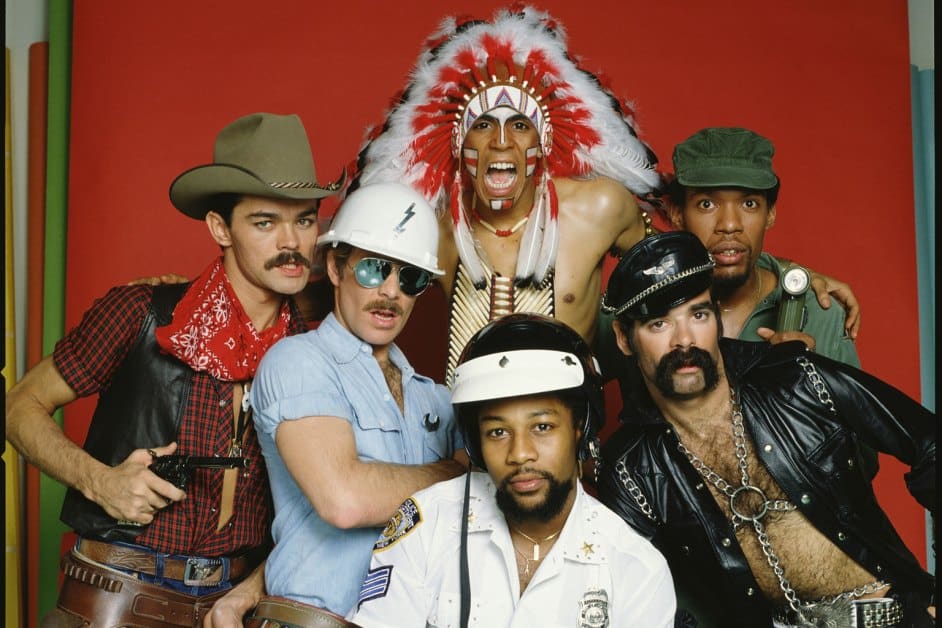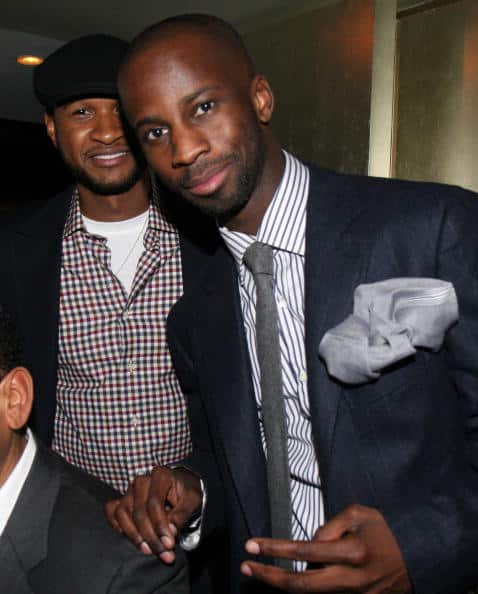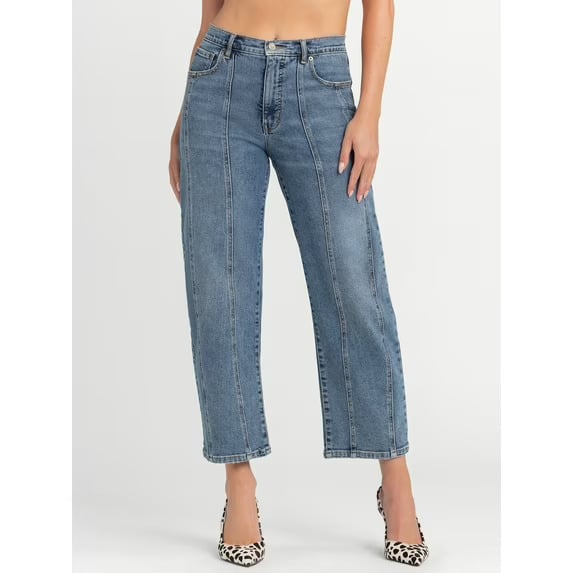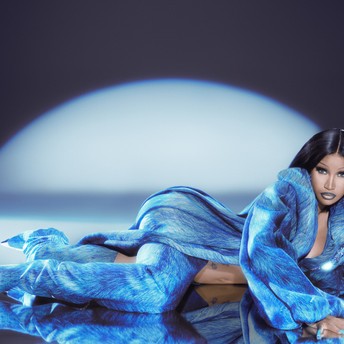News
Page: 59
Get the party started on the floor with these tracks perfect for a big group dance.
11/19/2025
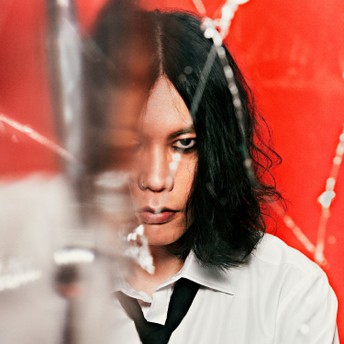
Trending on Billboard
Kenshi Yonezu’s “IRIS OUT” extends its domination over the Billboard Japan Hot 100 to nine weeks, on the chart released Nov. 19.
Downloads and streams for the Chainsaw Man – The Movie: Reze Arc theme declined this week, but karaoke jumped to 109% of the previous frame. It leads streaming and video views for a ninth consecutive week, and holds at No. 1 on karaoke for the sixth week in a row.
Debuting at No. 2 is timelesz’s “Steal The Show.” The title track of the group’s first single under its new lineup, released Nov. 12, sold 520,300 copies in its opening week to launch at No. 1 for sales, and enters at No. 17 for radio airplay. At No. 3, also new this week, is NMB48’s “Seishun no Deadline,” which sold 197,490 copies to bow at No. 2 for sales.
Explore
See latest videos, charts and news
Kenshi Yonezu and Hikaru Utada’s “JANE DOE” slips two spots to No. 4. The ending theme of the Reze Arc movie holds at No. 2 for streaming for the eighth straight week while remaining inside the top 10 for both video and downloads. At No. 5 is HANA’s “Blue Jeans,” which enters its 18th chart week with gains in video — up 105% from last week — and a slight uptick in karaoke.
Elsewhere on the Japan Hot 100, Gen Hoshino’s “Ikidomari” debuts at No. 22. The theme song for the film Hiraba no Tsuki opens at No. 1 for downloads, No. 22 for radio, No. 48 for streaming, and No. 83 for video.
The Billboard Japan Hot 100 combines physical and digital sales, audio streams, radio airplay, video views and karaoke data.
See the full Billboard Japan Hot 100 chart, tallying the week from Nov. 10 to 16, here. For more on Japanese music and charts, visit Billboard Japan’s English X account.
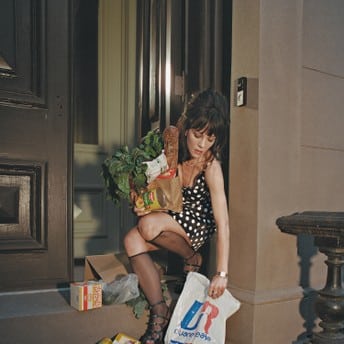
Trending on Billboard
Last fall, Kito and her good friend Blue May spent a lot on the couch at her house in L.A., binge-watching Couples Therapy and discussing the trajectories of their respective careers. Both producers had recently come out of relationships, and they decided they were ready to focus on not only working, but working on something great.
Explore
See latest videos, charts and news
“We were like, ‘We’ve got to make some s–t happen that we believe in so hard,’” Kito says.
Call it fate or good luck or hard work paying off, but the binge-watching sessions ended a few weeks later, when May got a call from his old friend and previous collaborator Lily Allen. She wanted to make an album, and she was coming to Los Angeles, and more specifically to May’s house in the Hollywood Hills, to do it.
May brought Kito into the project, and with that they were off the couch and in May’s home studio, making some s–t happen that they believed in so hard and that millions of people around the world would eventually believe in too.
An electronic artist and multi-genre producer from Australia who’s lived in Los Angeles since 2018, Kito has a long list of releases on labels including Diplo’s Mad Decent, Astralwerks and Sweat It Out, along with her ongoing Club Kito party at The West Hollywood Edition hotel, events to which surprise guests including Empress Of, A-Trak, Diplo, Mallrat and Tove Lo have shown up. As of October, she also has co-producing credits on eight tracks of Allen’s confessional smash West End Girl.
“I mean, it feels like a new chapter starting,” the artist born Maaike Kito Lebbing says over Zoom from her house, her cat intermittently walking in and out of frame. In addition to working on West End Girl, Kito released a grip of excellent tracks in 2025 and has also executive producer on A Girl Is a Drug, the seven-track EP from DJ/musician/choreographer Parris Goebel that’s out Thursday (Nov. 20). (Goebel is globally known to pop fans for her choreography for superstars like Beyoncé, Rihanna and Justin Bieber, recently becoming a close collaborator of Lady Gaga’s for her Mayhem videos and tour.)
“There were days when I’d be working with everyone on the Lily album, and then I’d be recording with Parris in the evening, and it’s just like, the complete opposite energy — going from just [the Lily project] to club bangers,” Kito explains.
But dipping into, and in fact helping build, the sounds and worlds of other artists has been Kito’s focus for a while. Her career started in Australia when she got into electronic music, then started collecting records and DJing parties. Upon moving to London, she “lived in a five bed share house with a bunch of creatives and got paid cash to DJ” while scoring releases on Skream’s Disfigured Dubz label and generally exploring dubstep, lo-fi and other genres of the day.
She liked this bopping around between sounds and scenes, a sensibility that would inform her later work. “I think that’s why I’m really in my element as a producer for other artists,” Kito says, “because it feels so fun to get into someone’s world and explore it. It’s like being in a different band all the time. I really like that, because I get bored doing the same thing.”
Back in London, things leveled up for her again when began sending out demos, with a beat she sent to Diplo eventually sampled on Trinidad James’ 2013 song “Female$ Welcomed.” This led to her first publishing deal (“I didn’t even know what publishing was,” she says now), with her original James-sampled track eventually used in a Victoria’s Secret campaign.
Compelled by people in her London community who were simultaneously making their own music while also producing for other artists, she moved to L.A. in 2018 to pursue this type of dual path. In SoCal she felt more “invited into rooms that maybe I wouldn’t have been invited into in London, because London is a smaller scene, and people focus on what you’ve done. Coming here people were more like, ‘Oh, you’ve got a different perspective.’”
While experimenting with production techniques, she made loads of music that she just released under her Kito project, which drew the attention of labels in L.A. and resulted in more than two dozens single and EP releases since 2018. But the goal was never to become a jet-setting DJ.
“I’m really proud of the stuff I’ve put out on my artist project, but it’s definitely been me trying stuff as a producer and loosely fitting in the large umbrella of dance music,” Kito says. “I don’t really have a crazy career as a DJ because I don’t know if people know what they’re going to get [from my work.]”
But while her sound vacillated between dancefloors anthems and more indie singer songwriter type fare, she realized she had a superpower in her ability to bridge underground music and pop: “I realized I needed to lean more into what I’m coming to the table with, which is my unique perspective and the more underground music that I’ve been always into. It was always too pop for the underground, and too underground for pop. My palette is a little bit left-of-center, but I love pop music.”
This symbiosis of tastes made Kito the perfect fit to work on left-of-center pop music. She’s got producing credits for artists including Fletcher, Jorja Smith and Empress Of, and also spent 16 days in late 2024 working with May, Allen and a crew of collaborators on West End Girl.
“Blue called me and said, ‘Lily’s coming over to do music and wants to try to do an album. Do you want to do it with us?’” Kito recalls. “I was like, ‘Obviously yes, let’s do it.’”
Kito had actually worked with Allen once before in 2019. Based on that experience and the knowledge Allen wanted to work fast, had the idea to “just rope in all our friends that we know who are great and that everyone’s really comfortable with and see how that feels.”
This social alchemy worked, as a crew including Allen, May, Kito, and a collection of songwriters, producers and instrumentalists — including Chloe Angelides, Chrome Sparks, Alessandro Buccellati, Micah Jasper, Oscar Scheller, Leroy Clampitt, Leon Vynehall, Violet Skies and Hayley Gene Penner — set up shop in the pair of recording spaces May set up in his home.
“It was really special working with Blue, because he’s so good at shutting out the noise of the music industry, and so is Lily,” says Kito. “It was like, ‘This is going to be a little bubble and a world that we’re going to create.”
Gathered with Kito and May, Allen unveiled the themes of the album, which is allegedly about her separation from actor David Harbour amid his infidelities. “She wrote all the song names down in order and told us what she wanted to do the album about,” says Kito. “I mean, she filled us in on everything. We had a big cry and spent a couple hours drinking coffee and just catching up. Then she was like, ‘Okay, let’s do the album.’ I was like, ‘Are you sure?’”
Allen was sure, with the project’s instant rapid pace being “quite unsettling for me,” says Kito, “because I’m used to doing a lot and then picking the best of it. So this was really exciting, but also terrifying. I would be calling Blue like, ‘Hang on a minute. Don’t we need more time?’ But I think he’s such a brilliant quick decision type of person and is so good at trusting his instincts that it gave me confidence to trust mine. I actually don’t think I would have thrown myself into working with Parris this year if I hadn’t come off the back of that process with Lily.” (For his part, upon the album’s release May wrote to Kito on his Instagram that “this record would literally not exist without you! … You brought so many key people into this project – alongside your own insane talent!”)
With two high-profile projects on her 2025 resume, Kito says new opportunities are being presented for her and everyone that worked on West End Girl: “We’ve all been here doing the same work, but this is what happens when one thing connects, it opens doors in a great way. I’m so happy. I’m like, ‘What’s next year gonna be like?’”
While the calendar is quite yet clear, what’s obvious is that there’ll be less binge-watching on the couch and more making s–t happen that Kito believes in, so hard.
Trending on Billboard Sabrina Carpenter and Sydney Sweeney are two of entertainment’s busiest women, and Amanda Seyfried wants to add one more gig to their plates — a role in Mamma Mia 3, specifically. “I love portraying a mom, so I would love to see Sophie with her kids,” she mused to Entertainment Tonight while […]
Source: Johnny Nunez / Getty
Usher is officially ready to sign them (lawsuit) papers.
This one may hit different for Day 1 Usher fans, as there’s some business friction between him and songwriter Bryan-Michael Cox. Yes…”Mr.Another B.Cox Joint.” The two have collaborated on classics that have soundtracked many people’s lives. B.Cox’s pen and Usher’s voice have us “Burn” and “U Got It Bad.”
No further explanation needed, the duo makes magic together.
Outside of music, they’ve also supported each other’s business endeavors. Back in 2024, Bryan, alongside Alcide Honoré and Charles Hughes, asked the legendary R&B singer to invest in his restaurant, Homage ATL. After some initial hesitation, Usher agreed and loaned the group $1.7 million for the business. Months later, there were still crickets when it came to jump-starting the restaurant, so Usher asked for his money back.
He eventually received $1 million in August but remained short $700,000.
Usher was allegedly told that retiring the rest would be difficult because the money was used for “other purposes.” When asked what those purposes were, he reportedly didn’t get a clear answer. According to Complex, the Confessions singer is now seeking 4.9 million in damages. Since the news has popped off, Bryan made his own statement clearing the air:
“I’ve learned a lot recently about being careful with who you choose to invest in a business with. I’m currently in the middle os a failed deal that I didn’t orchestrate, and while the situation has been disappointing, I know my name will be cleared by both sides. It’s just unfortunate that this clarity didn’t come sooner.”
The legendary songwriter also made a point to say he and Usher are still friends, “While I’m unable to share more details right now, I want to make one thing absolutely clear: my 27-year friendship with Usher remains fully intact.”
Trending on Billboard
Welcome to Billboard Pro’s Trending Up newsletter, where we take a closer look at the songs, artists, curiosities and trends that have caught the music industry’s attention. Some have come out of nowhere, others have taken months to catch on, and all of them could become ubiquitous in the blink of a TikTok clip.
Explore
See latest videos, charts and news
This week: The hits keep coming for Olivia Dean after she makes her SNL debut, while Summer Walker’s latest offers a few streams to some R&B gems and a soul cult favorite gets a surprise viral hit.
Olivia Dean’s Ascension Continues, Thanks to Recent ‘SNL’ Debut
Olivia Dean sits in the top five of both the Billboard Hot 100 and Billboard 200 this week (charts dated Nov. 22). And, if her recent streaming numbers are any indication, she’s poised to continue soaring. According to early data provided by Luminate, Dean’s catalog earned 21 million official on-demand U.S. streams in the two-day period following her SNL debut (Nov. 16-17), marking a 23% increase from the streams her catalog pulled the week prior (Nov. 9-10). Following her Saturday Night Live performances of “Man I Need” and “Let Alone the One You Love,” Dean’s catalog was also up nearly 120% in U.S. digital sales, with over 2,600 digital downloads sold during Nov. 16-17.
“Man I Need,” which reaches a new peak of No. 4 on this week’s Hot 100, is also up 4% in streams post-SNL, earning 7.5 million official streams during Nov. 16-17. In that same time frame, “Man” sold over 1,000 U.S. digital downloads, marking an 89% jump from the 550 copies it sold during Nov. 9-10. “Let Alone” earned a much larger boost, soaring 44% to over 1.2 million official streams during Nov. 16-18, and leaping a whopping 1,465% to over 300 digital downloads sold during the same period.
Between her SNL debut, a recently announced four-night run at Madison Square Garden and the afterglow of her first Grammy nomination, the world simply can’t get enough of Olivia Dean and The Art of Loving. — KYLE DENIS
Streaming Audiences Say ‘Yes’ to Lift-Heavy Summer Walker Album
Singer/songwriter Summer Walker released one of the year’s most anticipated R&B albums on Friday (Nov. 14) with Finally Over It, third album in her acclaimed Over It trilogy. The 18-track, two-disc set was littered with guests — including big names like Chris Brown, Teddy Swims, 21 Savage and Doja Cat — but nearly as strewn with samples and interpolations from past R&B staples, with many of those originals seeing streaming bumps in the days following its release.
The biggest of the bunch was for “Yes,” the fan-favorite deep cut from Beyoncé’s 2003 solo debut LP Dangerously in Love. The song’s “First time I said ‘no,’ it’s like I never said ‘yes’” hook is borrowed for the intro to Walker’s obversely titled “No,” one of the set’s early streaming breakouts. According to early data provided by Luminate, “Yes” racked up 94,000 official on-demand streams over the first four days of Finally Over It‘s release (Nov. 14-17), nearly double the 48,000 it amassed in the equivalent four-day period the prior week.
Other bumps from the set were enjoyed by a decades-older R&B throwback (Roberta Flack’s 1978 Donny Hathaway duet “The Closer I Get to You,” interpolated in Walker’s “Baller,” up 12% to 89,000 streams over that period) and a 50 Cent soundtrack single (2005’s “I’ll Whip Ya Head,” lifted in “Robbed You,” up 11% to 125,000). – ANDREW UNTERBERGER
Labi Siffre’s Tender 1971 Classic Finds New Life on Streaming After Bumble Ad Sync
A couple months ago (Sept. 8), Bumble launched a new “For the Love of Love” ad campaign, soundtracked by Labi Siffre’s “Bless the Telephone,” a tender 1971 ditty that’s found a new life on streaming in recent weeks.
During the week of Sept. 26-Oct. 2, “Telephone” earned over 216,000 official on-demand U.S. streams. Eight weeks later (Nov. 7-13), the song now boasts over 1.77 million official weekly streams, clocking a 721% increase in activity, according to Luminate.
In addition to the Bumble campaign, Siffre has also become something of a TikTok star. His management-run account frequently shares clips of the now-80-year-old artist reflecting on his life and career, and many users became even more enamored with him after learning about his queerness and anti-apartheid stance — as well as the artist formerly known as Kanye West sampling him for 2007’s “I Wonder.” On TikTok, the official “Telephone” sound plays in over 36,500 posts, while a clip of a young Siffre performing the song earned nearly 15 million views. — K.D.
Trending on Billboard Calvin Harris is moving his overseas talent bookings from WME to agent Brent Smith at Wasserman Music, who has long managed his U.S. bookings, sources tell Billboard. Smith formerly worked at WME and left the agency for Wasserman in late 2020. Related Representatives for Harris say the Scottish EDM artist, known for […]
All products and services featured are independently chosen by editors. However, Billboard may receive a commission on orders placed through its retail links, and the retailer may receive certain auditable data for accounting purposes.
Trending on Billboard
Jessica Simpson is getting her fans and followers ready for the holiday season without breaking the bank.
The “These Boots Are Made for Walkin’” singer just dropped her latest Walmart collection including silhouettes perfect for wearing to your next holiday party. Each piece is under $100, and marries Cali boho style with Texan flair. You’ve got tons of options to choose from to build an outfit, including a multitude of denim options, printed coats, flirty tops and even a few bag options. To help you sift through all the Simpson-approved offerings collection, we’ve included some of our favorite pieces below for you to shop at Walmart’s website.
Jessica Simpson Women’s and Women’s Plus Myrtle Barrel Leg Jeans
Wide-leg denim.
Good denim is always hard to pass up, especially with a $32.50 price tag. These Myrtle jeans boast a barrel leg, an on-trend silhouette seen on the likes of Jennifer Lopez and now Simpson. Sizing currently ranges from 2 to 16 plus. Barrel jeans are, as the name suggests, barrel-esque with wide legs and a high waistline. These feature a light wash with seams running down the legs, giving the style a more tailored fix, juxtaposing the usual oversized nature of a barrel jean. If this light wash isn’t your thing, the Myrtle comes in five other colorways.
Explore
See latest videos, charts and news
Jessica Simpson Women’s Aleera Ribbed Knit Top with Lace Trim
A black lace-trimmed top.
This ribbed knit top is a stunner, and one we can envision being worn and re-worn to infinity. Retailing for $22.50, the top comes in three styles, black, a sage green and burgundy with sizes ranging from XS to XL. The knitted top is made of a cozy and slightly stretchy mix of 58% cotton, 39% polyester, and 3% spandex and features a square neckline and long sleeves trimmed with dainty lace for a peekaboo effect. This is a great basic that can replace your less-than fashionable graphic tees or turtlenecks. We’d suggest you wear tucked into jeans, maybe with loafers and a cozy jacket over top.
Jessica Simpson Women’s Taylor Hobo Bag in Pinot Noir
$28.78
$36
20% off
A slouchy chestnut brown hobo bag.
This Taylor Hobo bag bridges the gap between form and function. The everyday style retails for $28.78 and is roomy enough to store all your go-tos at 16.5” W x 11” H x 5” D. The bag features a patchwork design on the front panel and a unique wine-color and gold-studded detailing that offers the piece that extra edge. The inside is lined with a whimsical paisley print, paying homage to the boho category it falls under. If you don’t like the reddish brown hue, the Taylor Hobo also comes in black, a more versatile option. It’s a unique find, especially at that price, and one we can see being worn frequently to the office or out for coffee with friends.
Jessica Simpson Women’s Dionne Eyelash Cardigan Sweater
A striped cardigan sweater.
This Dionne cardigan is one of our favorites from the holiday collection. Retailing for $29.50, the layering piece features this unique berry red hue with black striping and shiny button accents. The style is slouchy and super cozy with this fuzzy mohair-esque texture that really brings life to the piece. The hem is slightly cropped, while the neckline is a deep V. Sizing ranges from XS to XL. While you can wear this cardigan on its own, we’d utilize it as a layering piece to warm up your band tees or blouses.
Jessica Simpson Women’s Round Collar Faux Fur Jacket
A cropped leopard-printed faux-fur jacket.
Winter and animal print go hand in hand. You can’t really go wrong with leopard print, and Simpson’s holiday collection is chock-full of the whimsical print. This faux-fur number currently retails for $62.50, one of the more expensive pieces in the collection, but it’s well worth the price. Sizing ranges from XS to XL and we’d recommend sizing up for a more oversized fit. The style is made of cozy faux-fur and features a chic, rounded collar and a cropped hem, sitting just above the hips to allow your bottoms to shine through. This is a warm and stylish option if you’ve been on the hunt for a winter coat.
Jessica Simpson Women’s Stayce Cropped Ruffle Top with Long Sleeves
A cropped ruffled top.
The Stayce is another one of our favorites because it’s one of the true boho-esque styles in the collection. Retailing for $29.50, the top features dramatic bell sleeves and an equally dramatic, cropped flared hemline that gives the top shape. The neckline also gets the same flared treatment, reminiscent of a pirate or something we’d see worn on a ’70s flower child. All the flared accents give the piece so much movement so it’s definitely a style you’ll want to be doing some twirling in. Sizing is available in XS to XL. To style, we’d wear the Stayce with high-waisted denim or a floral maxi skirt and some chunky western boots, leaning into the boho vibes.
Jessica Simpson Lollah Women’s Heels
A leopard-printed block heel.
If you’re heading to a holiday party this season, you’ll probably be needing some kind of fancy shoe. These Lollah heels just might do the trick, and they’re only $29.99, so you’ll have plenty of funds left over to buy people gifts. This style is leopard print; however, there’s a metallic silver option too. The shoe features a comfortable block heel standing at four inches, giving the wearer an elongated silhouette. A thin ankle strap further secures the shoe to the foot, put in place with a silver buckle. It’s a simple but effective shoe with a closed toe, great for colder weather. We’d style these with a black maxi dress or for the office with a sleek and tailored suit.
Trending on Billboard Cardi B has shared the first photo of her baby boy she shares with Stefon Diggs. Cardi posted the carousel of photos on Wednesday (Nov. 19), which shows the rapper cuddling her baby in a nursery, as well as in the hospital bed right after his birth. The caption notes the date […]
Trending on Billboard
The Contenders is a midweek column that looks at artists aiming for the top of the Billboard charts, and the strategies behind their efforts. This week, for the upcoming Billboard 200 dated Nov. 29, as Taylor Swift and KPop Demon Hunters continue to reign on the chart, a flurry of new albums looks to get in just behind them.
Explore
See latest videos, charts and news
Summer Walker, Finally Over It (LVRN/Interscope): It’s been four years since R&B star Summer Walker’s previous album Still Over It – twice the time it took in between that set and predecessor Over It – so her new album certainly rates as one of 2025’s most-anticipated. Finally Over It finally arrived on Friday (Nov. 12), with an 18-track, two-disc streaming edition that includes big-name features from Chris Brown, 21 Savage, Doja Cat, Teddy Swims and many more.
The set has some big numbers to live up to following Still Over It, which became Walker’s first No. 1 on the Billboard 200 when it debuted atop the chart with a career-best 166,000 first-week units. That set was riding momentum from both the slow-building acclaim for the original Over It and a top 40-charting Hot 100 hit lead single in “Ex for a Reason”; it may be tougher for Finally Over It to match that after four years and without a new single (though “Heart of a Woman” did reach No. 57 on the chart in late 2024).
Tracks from Finally littered the top of the real-time Apple Music chart upon the album’s release, but its presence on the Spotify Daily Top Songs USA listing was more muted — with no songs remaining in the top 200 on the Nov. 18-dated chart — so the album will have to sell in big numbers to threaten the top of the charts. To that end, Walker has released four vinyl editions of the album (with 14 tracks on all physical releases), as well as four CD boxed set editions, each with a branded piece of clothing and a copy of the CD.
In addition, on Tuesday night Walker released the set’s Cocktail Hour deluxe edition as an Apple/iTunes exclusive for streaming and download — with five audio bonus tracks. She also dropped a The Afterparty deluxe edition of the album to DSPs and download services, which adds three different new tracks to the 18-track set, including a solo version of the original’s Anderson .Paak collab “1-800 Heartbreak.” It might be enough to make Taylor Swift sweat at the very top of the chart, but it should elbow Finally Over It into the discussion for the week’s top debut.
NF, Fear (NF/Capitol): Don’t count out NF, who hasn’t had a major crossover hit since 2017’s “Let You Down,” but who maintains a very steady chart presence — with a pair of No. 1 albums on the Billboard 200, and a No. 2 bow most recently with 2023’s Hope. His latest release isn’t a full-length, but a six-track EP; still, all six tracks debuted in the top 60 on Spotify’s Daily Top Songs USA chart (including two in the top 10); all six bowed higher than any track from Still Over It.
The set should also sell well to the rapper’s highly devoted fanbase, with Hope available for purchase in a pair of vinyl variants, a standard CD, and a deluxe CD boxed set (with a T-shirt and CD) — with signed copies of the set previously available on his webstore already sold out. If the set’s streaming performance can remain strong enough to make up for its relatively short track length, it should have a strong chance of a top five debut, and may also contend for the highest-bowing set of next week.
5 Seconds of Summer, Everyone’s a Star! (Republic): Now a full decade past its initial breakthrough, Australian pop-rock group 5 Seconds of Summer has maintained a respectable mainstream standing by evolving and maturing as it’s progressed. Consequently, it’s managed to reach the top two on the Billboard 200 with each of its first five studio albums, most recently reaching No. 2 with 2022’s 5SOS.
The band’s new embrace of self-awareness on Friday’s Everyone’s a Star! can be seen both in advance single “Boyband” and the name of its Cool Dad deluxe edition — a webstore exclusive with five additional tracks (including the title track), to go with a separate Fully Evolved deluxe (four bonus tracks, not with “Cool Dad”) and seven additional variants in both vinyl and CD. The surfeit of deluxe editions should help the album reach the Billboard 200’s top 10, though continuing the group’s streak of top twos might be a bit out of reach.

 State Champ Radio
State Champ Radio 